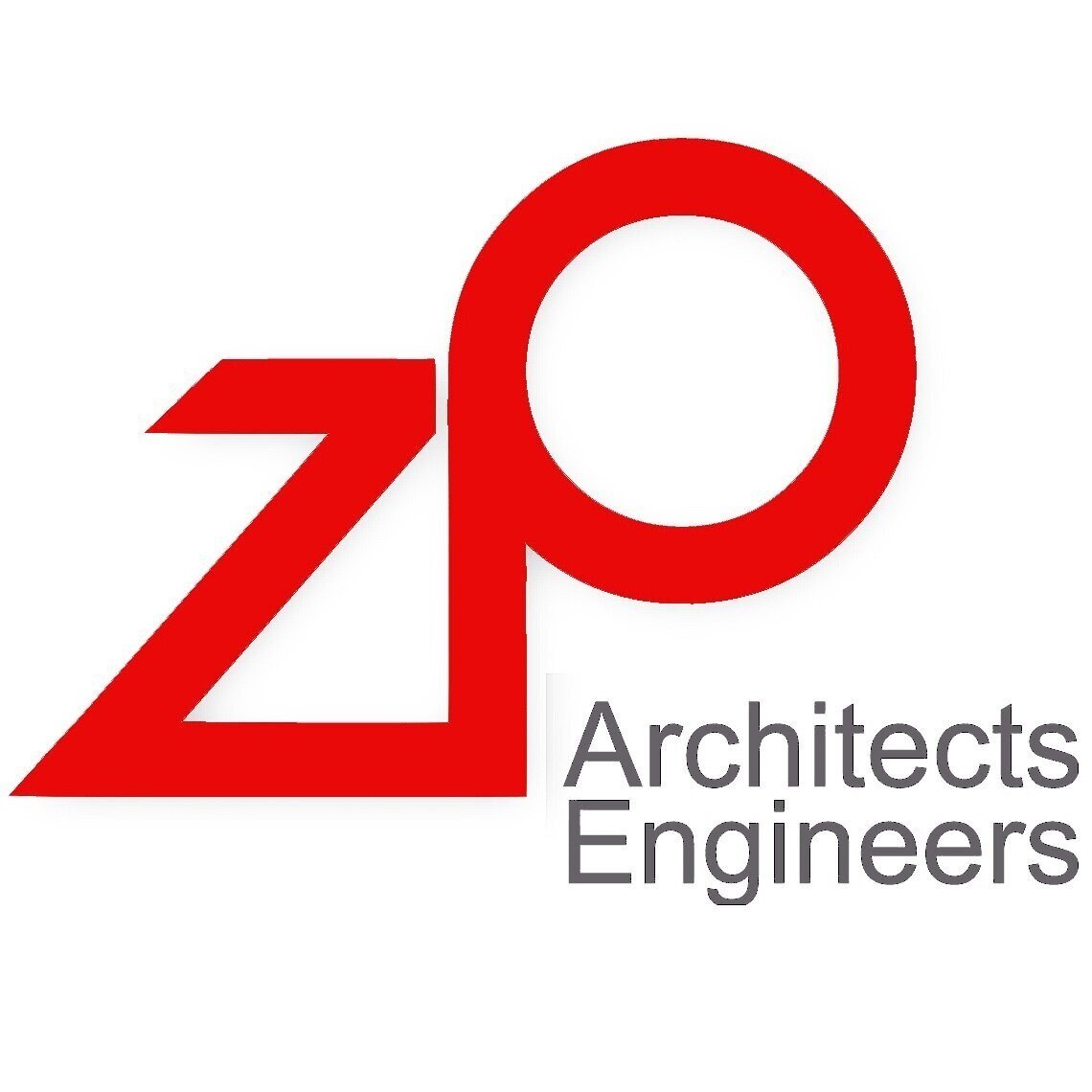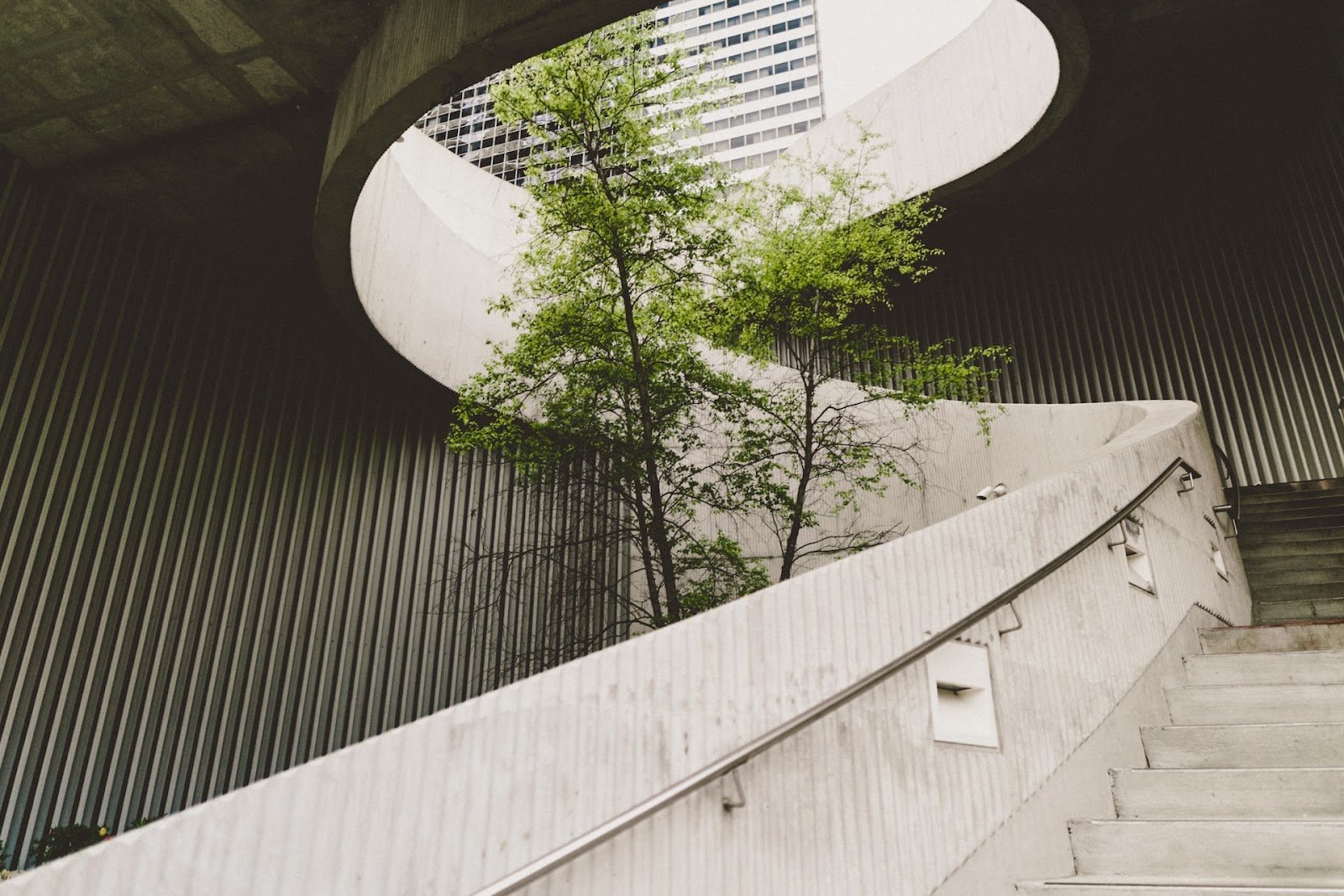13 Questions to Ask Your Commercial Architect
13 Questions to Ask an Architect [Before You Hire Them]
Building and designing a commercial building is a big undertaking. Project owners could — and should — have many questions along the way.
The architect is one of the main people to go to for answers, since they have considerable control over how your finished project will look.
Choosing the right architecture firm can significantly impact your budget, design decisions, and overall project results.
Here are thirteen of the most important questions to ask your commercial architect:
1. How Do You Manage the Design Process?
There are three different methods to follow when embarking on a new building project. Which your architect prefers can help you better understand how your building project will proceed if you choose to work with them.
You can read descriptions of the three methods below. If this is not your first project, you may prefer to hire someone who uses the method you are most familiar with.
Traditional
The traditional method is also known as Design-Bid-Build. With this method, you bring your project to the architect first.
They design the project to your specifications, and then they have little to do with it after that.
You will need to open your project up for bids from contractors without prior knowledge of the project.
Contractors will construct the building based on the drawings rendered by the architect.
This traditional method is feasible but has its limitations. The professionals involved in your project are disconnected and have very little communication.
General Contractor (GC)/Construction Manager (CM)
This method still involves the architect having little to do with the process after finishing the drawings. However, they communicate with one individual for any questions or change requests that come up.
With these types of projects, the project owner hires a general contractor to act as the construction manager. The contractor will oversee the construction process and act as an advisor to the project owner throughout.
While this method can reduce stress on the project owner, it gives the construction manager a lot of power and responsibility, which can be risky.
Discover: What are As-Built Drawings?
Design-Build
This is also known as the Architect, Engineer, Contractor (AEC) method.
With AEC, all the professionals collaborate on your project from start to finish.
This benefits the project in several ways, including cost savings and a faster schedule.
2. Do You Offer Additional Services?
Some architectural firms offer more than just designing. Having your architect involved beyond that can be beneficial for the project as a whole in many ways.
Ask your architect if they offer extra services such as:
Project Management
When architects design a building, they have a clear vision of what the end product should look like. They deeply understand the steps that must be completed from beginning to end.
For this reason, the architect could be the perfect professional to oversee the project.
Some architectural firms offer project management as a part of their suite of services, and it may be in your best interest to include this in your contract.
Site Visits
Many firms will design the project, hand you the paperwork, and have very little to do with the project thereafter.
Others have a more hands-on approach. They like to make periodical site visits to ensure that the contractor is in full accord with the design they prepared.
Interior Design
The architect obviously has the skills to design a project, hence their profession. However, some architects have a wider skill set they can offer you.
Many architects love to design not just the facade of a building but the interior as well.
It makes sense to have the same designer create the look of both aspects of your project, ensuring a cohesive design throughout.
Contractor Hires
Finding a contractor that jives well with your architect can be a hassle. If your architect has a preferred contractor they like to work with, you should strongly consider asking your architect to give them a call.
For example, ZP Architects often partners with FMP Construction for many projects. They have a well-oiled professional relationship that creates a positive work environment with mutual respect and understanding.
After your relationship with the architect, the architect/contractor relationship is one of the most important to the success of your project.
Already have a builder in mind? Read up on how to build a strong architect-contractor relationship.
3. Do You Follow a Design Philosophy or a Signature Style?
Architects should be adaptable to the desires of their clients. However, some have a philosophy or architectural design style they generally follow.
Knowing this upfront can help you determine if it's a good fit for your project.
Ask to see some of the design work they completed for their past clients. Look for consistencies and patterns. If you identify repeated design elements that you aren’t cohesive with, you may not have found your ideal architect.
4. Do You Implement Sustainability or Green Design?
Sustainable design is a hot topic in the construction industry. If these are important issues to you, your architect should be able to deliver them.
Prioritizing these design factors can save money and reduce your environmental impact.
Related: Elements and Strategies of Sustainable Design in Architecture
5. What Are the Biggest Challenges of My Project?
Every project has its challenges. You will want to know your architect's viewpoint on these challenges.
How they tackle these challenges can show you their problem-solving and goal-reaching abilities.
Many architects will use tools to identify and solve potential issues in the projects before they begin designing.
6. What Is the Expected Timeline?
Your architect should be able to help flesh out a realistic timeline for your project. This helps you know what to expect in the future and how long it will take for each of the different phases of the architectural process.
This includes:
Design development
Planning
Construction
Each of these phases has complexities that can cause a bump in the timeline.
Read up on the ins and outs of each phase in our insider’s guide to the architectural design process.
7. Do You Have a Preferred Builder?
As we've already mentioned, architects often have builders they work well with. They may refer you to several builders; ultimately, the final decision is yours.
That said, allowing your architect to have some input in choosing the builder can be beneficial.
Having your architect and builder on the same page will make the construction process go much more smoothly.
8. How Will You Present the Project to Me?
Traditionally, architects present the project design to the project owner with two-dimensional designs and construction documents.
Some architects take things one step further and create a project model, giving the owner a better picture of the architect's vision. However, this is very time-consuming.
With technological advances, architects can present owners with digital renderings of their projects. There's software now to create 3D imaging so detailed you can almost imagine yourself inside the building.
Ask your architect if they can provide that experience for your project.
9. What Is My Role in the Design Process?
Architects are as unique as they are creative. They each have a preferred process for completing a project.
Naturally, a project owner wants to be as helpful as possible to ensure the architect doesn't waste time designing a project that doesn't meet expectations.
The biggest factor here is how to communicate. Ask your architect how much input they want you to have in each design phase. Some will want to run things by you as they go; others will prefer to get the information upfront.
Who is your point of contact when you have questions during the design process?
Getting familiar with this person from the outset can help facilitate communication during the design process.
10. What Is Your Fee Structure?
Of course, you understand that your architect will want to get paid. Yet, asking how they structure their architectural fees will help you better understand how much the design process will cost.
There is no standard rate for architects. Each has the freedom to set competitive fees as they see fit.
Most architects will follow one of the following fee structures:
Percentage of the Project
Some architects will structure their fees around the size and scope of the project. When they design the project, they will see the end cost and charge you a percentage of that total as their fee.
This number is usually between 8-15%, with an extra 3-12% for commercial projects.
Fixed Rate
Another option for architects is to charge a fixed rate. This is usually only used for smaller projects, where surprise redesigns aren’t common.
The fixed rate is sometimes done through monthly billing or a lump sum at the end.
Hourly Rate
Some architects prefer to work on an hourly basis. This ensures that their invested time is well-compensated.
If this is the fee structure your architect goes by, you need to ask a couple more questions to know how much your project will cost:
How many hours do they estimate your project will take?
Will they require a retainer before they begin working?
Additional Fees
You may also incur some additional fees throughout the architectural design process. Fees vary depending on the firm you are working with and the needs of your project.
Fees may include:
Land surveys
3D renderings
Building permits
Reimbursable costs such as postage, mileage, and printing
Another additional fee would be for any change requests, which we will discuss more under point #12.
11. How Do You Go About Ensuring a Project Remains On Budget?
What tools do they use to determine the cost?
Many cost-estimating software programs out there make this process accurate and efficient.
Most often, these tools help the entire project stay on budget. However, who will be overseeing this after the design process is over?
This leads to another question you should be asking:
Do they take part in managing the budget during construction?
12. What Happens If I Request a Change to the Project?
The developing project could sometimes show some need for change after the design plans have been approved.
This could be due to issues in construction, an overlooked business need, or simply the project owner no longer being happy with the current plans.
Before requesting such changes, a project owner would do well to consider the cost and implications of that decision.
Consider asking your architect these questions in advance:
How will a change request affect the project timeline?
How much will you charge for this redesign?
Will this cause a change in the budget overall?
Of course, the answer to these questions will be determined by the scope of the project changes requested.
13. Have You Worked on a Project Like This Before?
It is always best to hire a professional with experience; not just any experience, but experience with a project similar to yours.
Here are a few aspects of your architect’s experience that you will want to examine:
Scope and Size
Is your project larger than normal?
Large-scale projects are more challenging to organize than smaller ones.
Ensure your architect has experience with a project of the scope and size you are presenting. Architects without this experience may make mistakes if they aren't used to the complexities of such a large undertaking.
Area, County, or City
Choosing a local architect can have many advantages.
An architect with experience in local permitting makes the process much smoother because, undoubtedly, they've created a relationship with these county and city offices.
Type of Commercial Use
You’ll also want to ensure that the architect you choose has completed a commercial project of the same type of business.
For example, an architect who specializes in designing retail stores may not be the best at designing office or industrial spaces.
Check your architect’s track record. Ask for examples of designs specific to your industry they have completed in the past. If they have none to share, they may not be your best choice.
You may also like: A Project Owner's Guide to Commercial Building Design
Conclusion
Remember — there are no stupid questions. Your architect should be willing to answer any you have, especially the list of questions just discussed. Don't hold back from asking any more that you may have.
Only by asking the right questions will you know if you are hiring the right architect.
ZP Architect understands that you will have questions. Schedule your consultation today, and we will gladly answer any you have.







